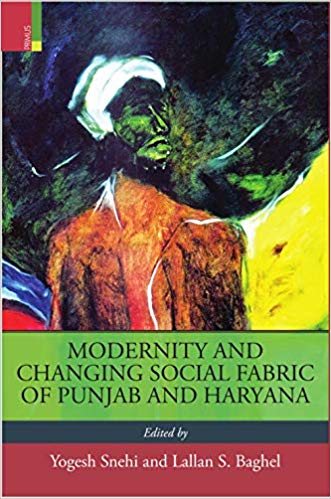Snehi and Baghel’s edited volume is a compilation of papers presented at a conference at AIIS in 2010, on the topic of modernity and the changing social fabric of Punjab and Haryana. The essays in this volume are wideranging, and provide a contemporary perspective as well as historical context to many of the present concerns of the region. Some of the essays also provide possible correctives to contemporary problems, grounded in historical analyses of a variety of economic and cultural factors. The dimension of fieldwork based on economic and historical research is a valuable addition to the current debates about the social and political problems that the region faces today. Crucially, caste is a focal point for many of these essays.
The first section is concerned with the landscapes of modernity, and begins with Kumar Sanjay Singh’s overview of the relationship between the emergence of the modern nation-state and the manner in which regions have been prefigured into the ‘modernist project’ since the late nineteenth century, focusing on Nehru’s interventions and the culmination of regionalism as the guiding force in party politics. Navprit Kaur studies Chandigarh as a living artefact of Nehruvian modernity, particularly the manner in which class boundaries and physical geographies affected each other, with a lovely little excursion into the popular music that is produced in and about the city. Mahima Manchanda interrogates the manner in which ‘proper Sikh girls’ were constructed through the Sikh Kanya Mahavidyala, and how this was related to the creation of a distinct religious community identity.

